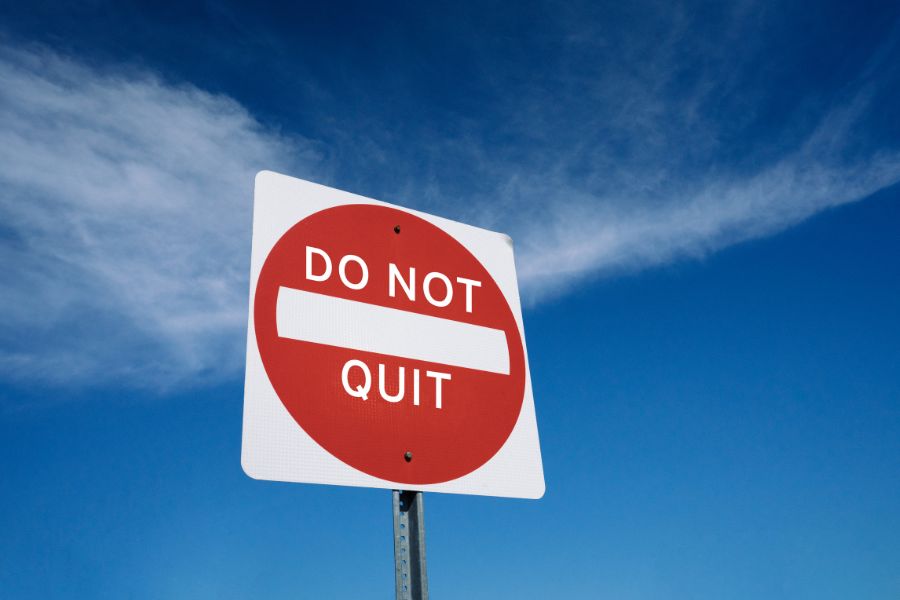Disclaimer: We sometimes use affiliate links in our content. For more information, visit our Disclaimer Page.
Few things in life are as demoralizing as being rejected for your desired job. It’s natural to feel like you’re not good enough, especially if the rejection letter cites reasons like “overqualified” or “not a good fit.” But don’t despair – there are ways to deal with refusal from a job and pick yourself up again.
In this article, we’ll discuss seven tips on how to deal with rejection from a job gracefully and move on to your next interview or opportunity!
What Exactly is Rejection?
Rejection is the act of refusing something that someone has offered. It can also be the refusal to give someone an opportunity, such as a job.
There are many ways to deal with rejection. Some people might take it personally and think they are not good enough. Others might see it as a learning experience and take what they learned from it to improve themselves for future opportunities.
Rejection can be seen positively or negatively depending on how you view it. It all depends on how you deal with it and how you generally cope with rejection.
Related: How To Send Follow Up Email After Interview No Response
Reasons Why You Get Rejected at a Job Interview
There are many reasons why you might get rejected after a job interview. Maybe the interviewer didn’t think you were a good fit for the position. Perhaps someone else was more qualified than you. Maybe the company wasn’t looking to hire anyone at the time.
Whatever the reason, it’s important to remember that getting rejected from a job interview is not the end of the world. It doesn’t mean that you’re a bad person or not qualified for the job. It just means that this particular opportunity wasn’t meant to be.
Related: How To Reach Out to Recruiters on LinkedIn
How to Deal with Rejection from a Job Interview
You can do a few things to deal with rejection from a job interview.
1. Don’t take it personally

It’s easy to see a job rejection as a personal failure, but remember that it isn’t. The fact is, you might just not have been the best candidate for that particular role. It doesn’t mean there’s anything wrong with you – plenty of other jobs are out there!
Focus on the positive and remember that you will eventually find a role that’s perfect for you. In the meantime, don’t forget to take care of yourself – get enough sleep, exercise, and eat healthily. These things will help boost your mood and give you the energy to continue your job search.
If you’re struggling to keep your chin up, talking to a counselor or therapist can help. They can provide impartial support and guidance when you need it most.
Rejection is never easy, but try not to take it too personally – there are other roles out there that would love to have you!
2. Keep a positive attitude
It can be hard to stay positive after receiving a job rejection, but it’s essential to try. A positive attitude will help you keep going in your job search and eventually land your desired role.
Some ways to stay positive include:
- Surrounding yourself with positive people.
- Practicing gratitude, write down three things you’re grateful for each day.
- Doing something nice for someone or acts of kindness can boost your mood and make you feel good about yourself.
- Keeping a sense of humor, laughter is the best medicine!
Remember, a negative attitude will only hold you back. Instead, stay positive and believe in yourself – you’ll eventually find the perfect role.
3. Don’t give up

It can be tempting to give up after job rejection, but try to persevere. Every ‘no’ brings you closer to a ‘yes’ – eventually, you will find the proper role.
If you’re struggling to keep going, remember your end goal and what motivates you. Please write down your goals and refer to them when you need inspiration. Sometimes, all it takes is a little reminder of why you’re doing this in the first place!
You might also want to try breaking your goals into smaller, more manageable tasks. For example, if your goal is to find a job in marketing, break that down into tasks like creating a list of companies you’d like to work for or updating your resume.
4. Learn from the experience
Job rejections can be painful, but they can also be valuable learning experiences. Use the job opportunity to reflect on what went well and what could have been improved. Here are some things you can do to learn from your job rejection:
- Talk to the hiring manager. If you can, reach out to the hiring manager and ask for constructive feedback on your application. They may be able to give you some insight into why you weren’t selected for the role.
- Analyze your application materials. Take a close look at your resume, cover letter, and other submitted application materials. Are there any areas that could be improved?
- Reflect on your interview performance. If you had a job interview, think about how it went. Were there any questions you struggled to answer? Is there anything you could have done better?
- Use feedback to improve. Use your feedback to improve your application materials and interview skills. With practice, you’ll be better prepared for future interviews!
By taking the time to reflect on your experience, you can learn from your mistakes and increase your chances of success in the future.
5. Know that it’s not just you
It can be easy to feel like you’re the only one getting rejected, but job interview rejections are pretty standard. Most people will experience rejection at some point in their careers.
Remember that you’re not alone in this – plenty of other people have been through (and are currently going through) the same thing. Knowing that others have faced similar challenges can help you feel less alone and more supported in your job market search.
6. Focus on your strengths

We all have unique strengths that can be of value in the workplace. Sometimes it can be difficult to identify our strengths, but there are a few ways to approach this task. One way is to consider the constructive criticism and feedback you’ve received from employers or colleagues.
What did they say you did well? Another way to identify your strengths is to think about what comes naturally to you. What do you find easy that others might find challenging? Once you have a list of your strengths, you can use it to help focus your job search and improve your application documents. By emphasizing your strengths, you’ll be able to present yourself as the ideal candidate for the job.
7. Manage your Emotions

Feeling disappointed, angry, or afraid is expected when you get rejected for a job. But you put your time, energy, and heart into preparing for the interview process and gave it your best shot. So, it can be tough to manage your emotions when you don’t receive the news you were hoping for.
The key is not to dwell on negative feelings. Instead, take a step back and analyze what may have gone wrong. What could you have done differently? How can you improve next time? Asking yourself these questions can help you move out of a negative mindset and into a more positive, productive one.
It’s also important to remember that rejection is often out of your control. Many factors determine whether someone is hired for a particular role. Maybe the hiring managers decided to go in a different direction, or someone else was just a better fit for the job. Whatever the reason, try not to take it personally. Instead, focus on the things you can control, like continuing to search for jobs and perfecting your interview skills.
Related: How To Ask for Feedback After Job Rejection
Conclusion
There you have it!
No one likes getting rejected, but it’s a regular job search process. By taking the time to reflect on your experience and focus on your strengths, you can learn from your mistakes and increase your chances of success in the future.
Thanks for reading! We hope these tips were helpful. Good luck with your job search!





